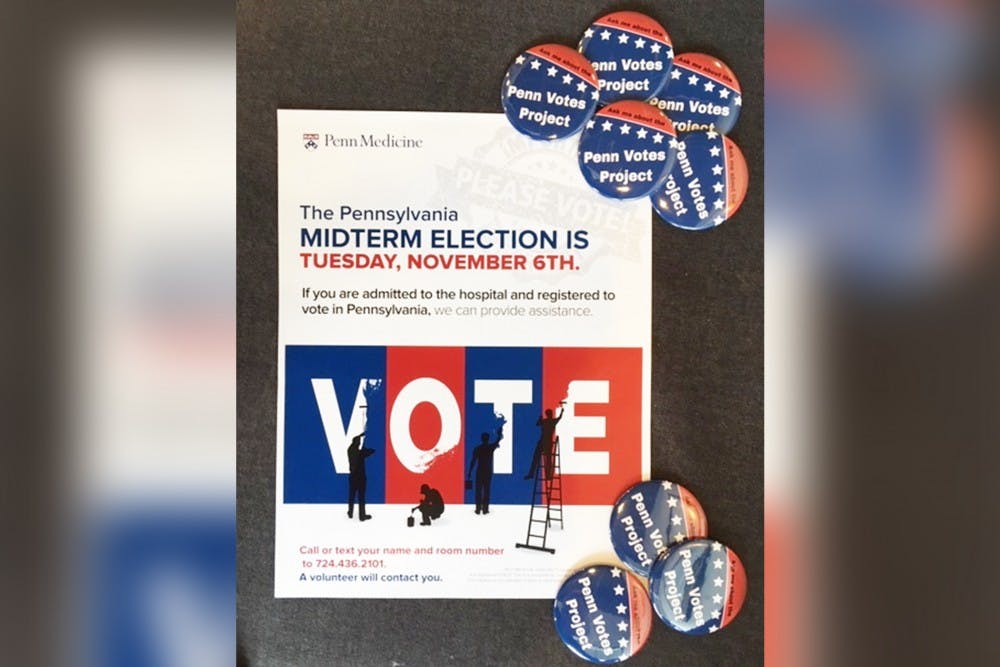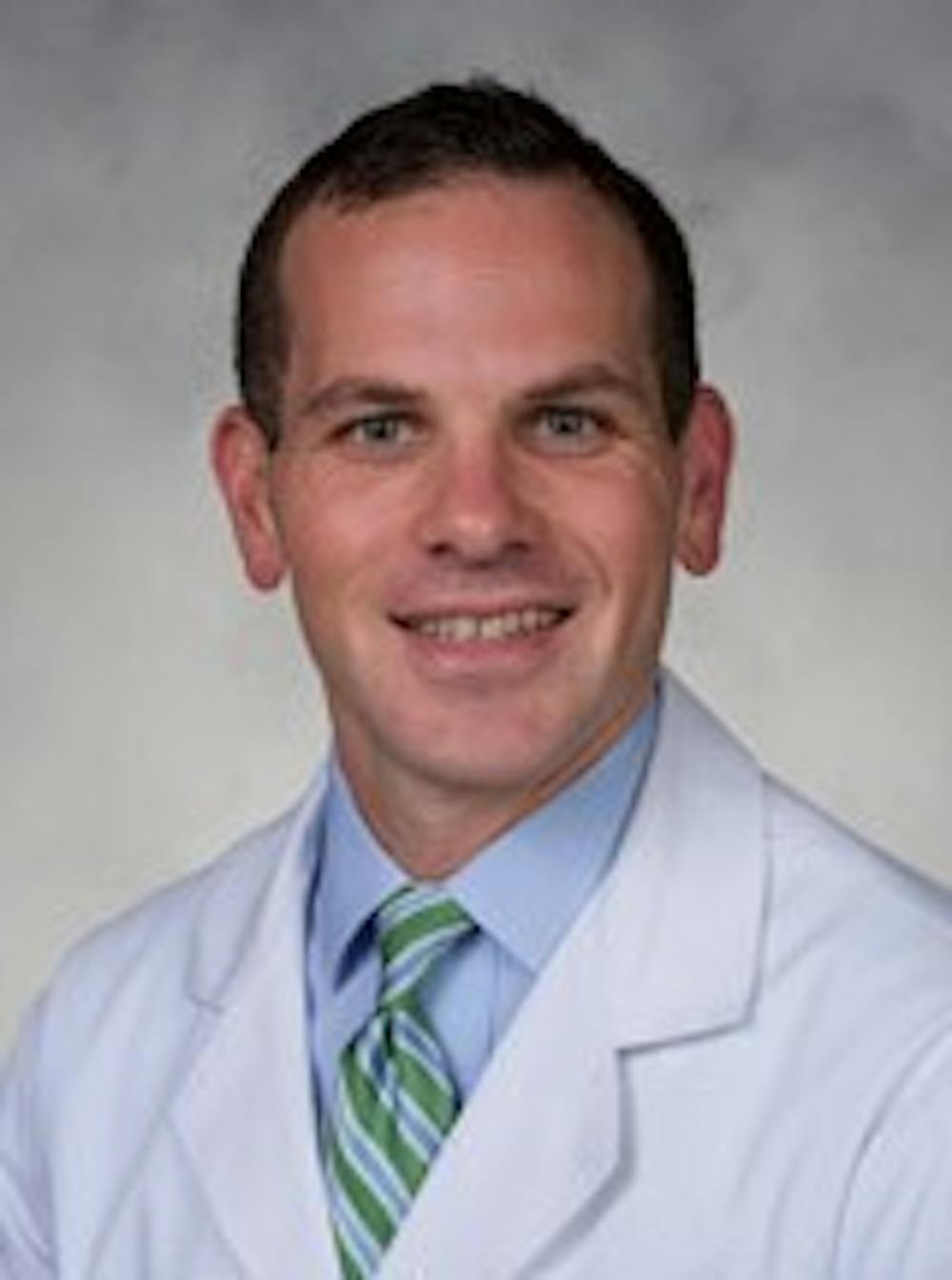
Deciding when and how to vote requires some planning, especially for those who vote with an absentee ballot. But for those who become hospitalized in the days before the election, planning becomes even more difficult and often makes it nearly impossible to vote. The student-led Penn Votes Project ran out of Penn Medicine identified this as a problem, and stepped in to help those suddenly hospitalized exercise their right to vote.
The project originated during the 2016 presidential election when some raised concerns on how newly hospitalized patients at Penn Presbyterian Medical Center would cast their votes. Now, the initiative has not only grown from approximately 10 student volunteers to 75 from Penn Med, Penn Law School, and the School of Nursing, but is also expanding to the Hospital of the University of Pennsylvania for the first time.
With midterm elections only days away, the volunteers are assisting patients in filling out emergency absentee ballots.
In Philadelphia, it is difficult for a hospitalized individual to vote during Election Day, said second-year Penn Law student Neil Deininger, who currently coordinates the law students in this effort.
Those who wish to vote but missed the deadline for absentee ballot applications, which is the Tuesday before Election Day, must fill out an emergency absentee ballot application signed by a physician and notarized before being delivered to the County Board of Elections in exchange for a ballot. After 5 p.m. on the last Friday before the election, patients must complete a last-minute emergency ballot application and receive judicial approval prior to receiving a ballot, appearing in court on Election Day.
“We really just want to be able to help if someone wants to vote,” Deininger said. “You might normally think, ‘Okay, there must be some way people in hospitals vote.’ Once you realize there really isn’t, it’s a way that you can really do something, create tangible effect."
Erin Hollander, an MD/PhD student at Penn Med and medical student chief coordinator, said that the project also helped patients maintain a level of regularity.
“The people who are in the hospital, they are having what is possibly some of the worst times of their lives,” Hollander said. “But this is one thing that we can help sort of keep them at their normal. This is one very important thing that they will not have to miss because of whatever led them to the hospital.”

Judd Flesch, assistant professor of Clinical Medicine in the Pulmonary/Critical Care Division, agreed that a major part of the Penn Votes Project was “to minimize the burden on families.”
The Penn Votes Project has different volunteers assisting in various roles. Some volunteers are trained and ready to answer patients who reach out through the project's Google phone line. The Penn Med and Nursing School volunteers sign up for shifts at the hospital and assist patients in filling out their applications. Then, the Penn Law students step in, helping acquire the physician signatures and notarizations before delivering the applications and returning ballots. The law students are also the ones to appear in court on Election Day.
Hollander added that the expansion to HUP has been a huge boost to the program and that the hospital is very invested in the initiative, but that it has also been an immense logistical effort.
Hollander has been working to inform nurses and physicians in the hospitals about the program to make sure everyone is prepared.
However, there are also many little details that need to be worked out before the initiative really kicks off in the final days before the election, which if not considered, “can really put a stop to the operation,” Hollander said. From making sure patients get their ballots on time and that hospitals are prepared, to ensuring volunteers know how to talk to patients, what to do if a patient is not from Philadelphia, and where to put completed applications for the law students, the effort has a lot of moving parts.
Although Hollander’s personal goal is to have the project help about 100 patients, she said it is impossible to predict, especially because the scope of the initiative is so new. “It is really hard to say because this kind of effort has never been attempted before.”
Nursing freshman Chantalle Dupont has only arrived at Penn several months ago, but is coordinating the Nursing School students in the effort, as this is the first time Nursing School students were part of the program.
The project has also sparked her interest in patient advocacy and health policy. While Dupont has experience in the hospital before coming to Penn, she said that the Penn Votes Project is a “great opportunity especially for freshman who have just started in the Nursing School to have exposure to the hospital setting and see what it’s like to interact with patients.”
In the future, Flesch, Hollander, and Deininger all say they hope that the Penn Votes project will expand. “We would love to have every hospital in the area offer this program. Every hospital in the United States,” Hollander said.
The Daily Pennsylvanian is an independent, student-run newspaper. Please consider making a donation to support the coverage that shapes the University. Your generosity ensures a future of strong journalism at Penn.
Donate






